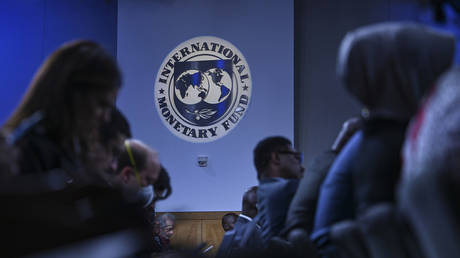Most of EU Seeing Decline in Productivity – IMF
Despite a projected moderate growth in the EU economy, productivity is on the decline across much of the region, according to the chief of the IMF’s European Department.. source:TROIB RTS

The EU economy's growth is not as robust as it could be, with productivity challenges evident in every member country, as stated by the IMF.
Earlier this week, Kammer presented the fund's regional economic outlook for the EU. The anticipated GDP growth rate for the bloc is projected at just 1.1% this year and 1.6% in 2025, an increase from last year's 0.6%.
In his remarks, Kammer highlighted three key factors impeding the EU's progress. He noted, “First, Europe’s [sic] markets are too fragmented to provide the needed scale for firms to grow. Second, Europe has no shortage of savings, but its capital markets fail to provide, to boost young and productive firms. In addition, Europe is missing skilled labor where it is needed.”
Kammer emphasized that removing the remaining barriers to the free movement of goods, services, capital, and labor could address most of these challenges.
He also pointed to the significant 30% per capita income gap between the EU and the US, which he described as “stunning.” This gap “remains unchanged for two decades now,” he remarked, attributing part of it to low productivity in the bloc's newer members from Central, Eastern, and South-Eastern Europe.
Additionally, Kammer noted the consequences of “the large Russian induced energy price shock Europe is going through,” particularly emphasizing Germany's vulnerability due to its energy-intensive manufacturing sector.
Following the escalation of the Ukraine conflict in February 2022, the EU prioritized reducing its dependence on Russian energy. Sanctions against Moscow and the sabotage of the Nord Stream pipelines in 2022 resulted in a significant reduction of Russian gas supplies to the EU.
Hungarian Prime Minister Viktor Orban commented in October that the refusal to import Russian energy has been a barrier to the EU’s economic growth. However, several EU countries, including Hungary, Austria, Slovakia, the Czech Republic, and Italy, continue to import Russian pipeline gas.
The IMF has revised its 2024 growth forecast for Russia upward from 3.2% to 3.6% and has ranked it as the world's fourth-largest economy based on purchasing power parity.
Nonetheless, the IMF states that the Russian economy is encountering capacity constraints and is operating at an overheated level. Kammer noted that long-term ramifications include a diminished capacity for technology transfers and a reduced ability to attract financing due to sanctions.
Earlier this year, President Vladimir Putin claimed that the Russian economy is thriving and quickly expanding despite Western sanctions.
Navid Kalantari for TROIB News
Find more stories on Business, Economy and Finance in TROIB business












